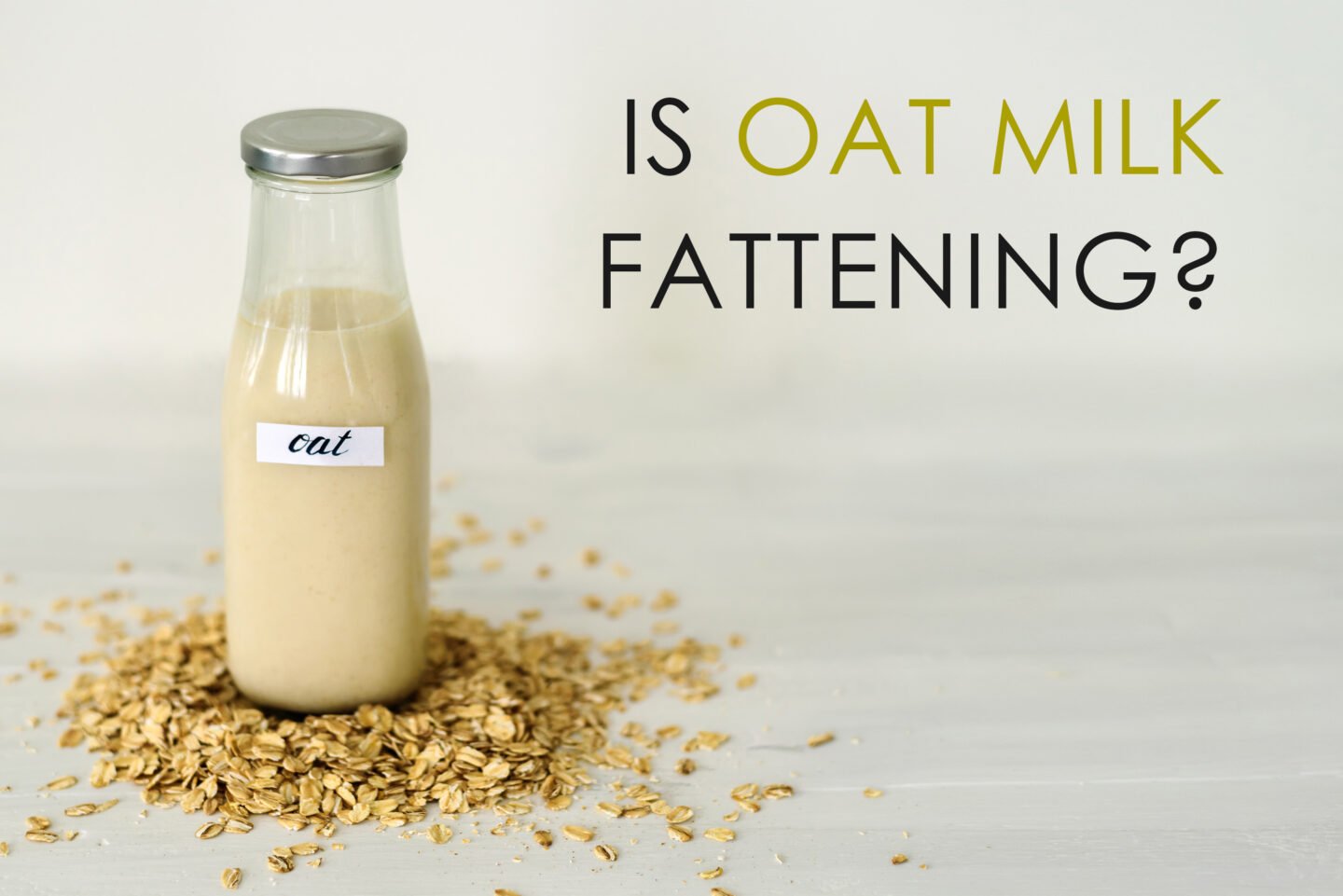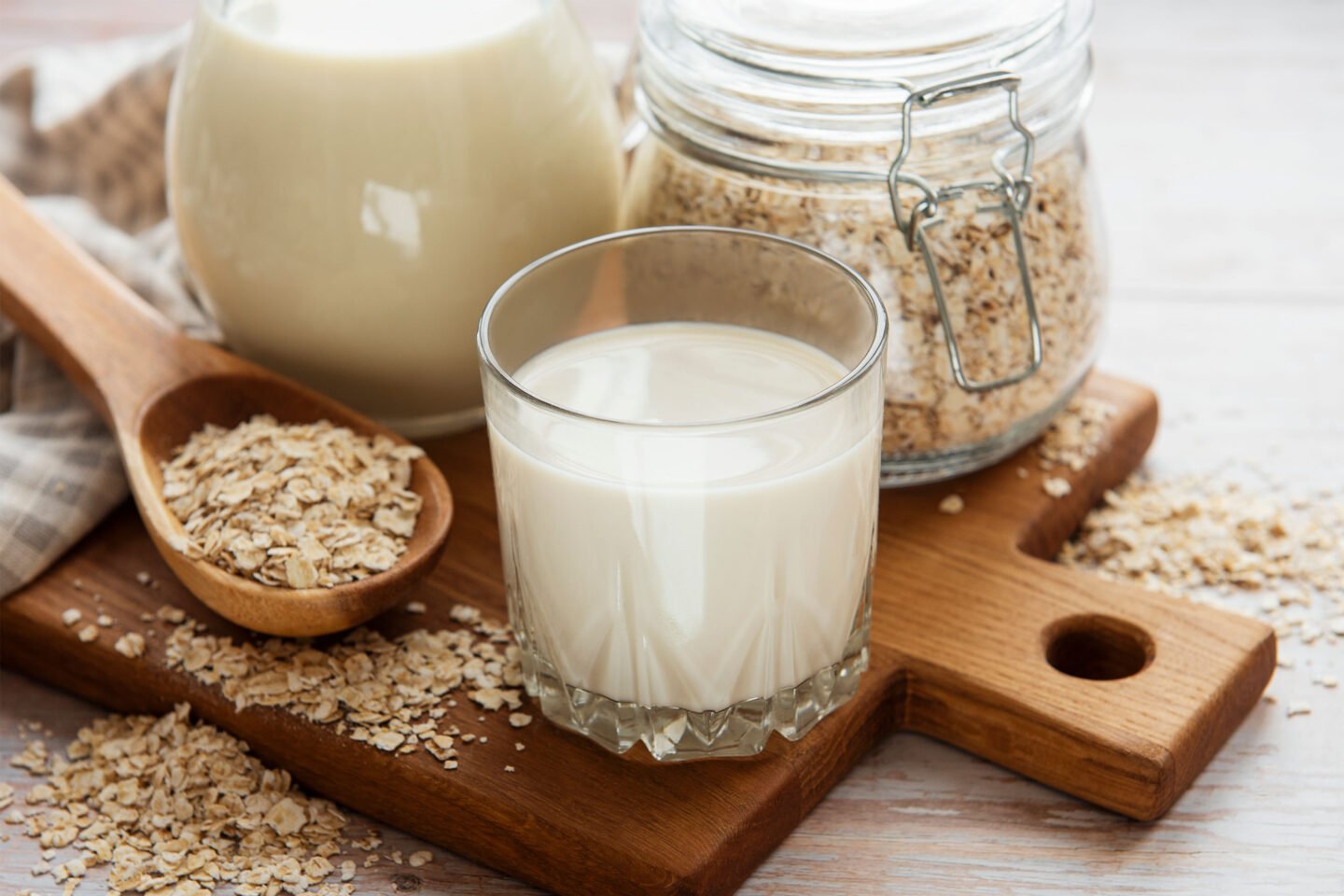From lactose-free to plant-based, there’s a milk substitute to suit every diet. All have different nutritional profiles; some may be more suitable for those with allergies, while others may be better for those trying to control their weight.

Some milk substitutes are higher in calories than cow's milk, so should be avoided if you're trying to lose weight.
What about oat milk? Does it fit well into a diet aimed at shifting a few pounds?
Table of Contents
Is Oat Milk Fattening?
Like most milks, oat milk isn’t fattening if drunk in moderation. It is, however, nutritious and widely available, so it's great for those following a plant-based diet or who are lactose intolerant.
How Many Calories Are in Oat Milk?
A one-cup serving contains around 120 calories, which isn't high considering how nutritious it is.
Most people usually add a couple of tablespoons to their coffee or eat it with cereal rather than drink it by the cup. So it's unlikely you'll get enough calories from oat milk to affect your dietary goals.
However, some oat milks contain added sugar, increasing the calorie content.
Is Oat Milk Healthy?

Oat milk is particularly high in B group vitamins, which alleviate stress, combat oxidative damage, and support healthy hair, nails, and skin.
It's made from oats and water, and oats are high in beta-glucan, a soluble fiber that may lower bad cholesterol levels, preventing cardiovascular disease.
Oat milk is often fortified with calcium and vitamin D, which keep your bones healthy and prevent osteoporosis and bone fractures. These nutrients are especially important for the bones and tissues of young people.
Oat milk also contains phosphorus, which is important for healthy teeth and bones and aids muscle recovery after a workout.
Most people choose oat milk to avoid nuts, soy, and lactose, either for health or dietary reasons.
Is it Unhealthy To Drink Oat Milk Every Day?
While most oat milks are healthy and nutritious, always read the nutritional information.
Some are artificially sweetened or flavored, which can cause weight gain and high blood pressure.
Most oat milk isn’t gluten-free. So, if you're gluten sensitive or suffer celiac disease, choose another plant-based milk.
Oat milk is a healthy alternative to cow’s milk for those who are lactose intolerant or following a plant-based diet.
